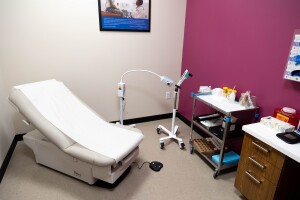A recent study published in the American Journal of Public Health highlights the significant challenges faced by minors in Texas seeking abortion care following the state’s implementation of a six-week abortion ban in 2021. The research indicates that minors experienced the most substantial barriers compared to other age groups in the months after the enactment of Senate Bill 8.
The study analyzed data from the nine months following the ban, which prohibits abortions after fetal cardiac activity is detected, typically around five to six weeks into pregnancy. Researchers compared this period to the same months from September 2020 to May 2021, prior to the policy change. Findings revealed a staggering 60% decrease in facility-based abortions for Texas minors, while adults aged 25 to 29 saw a 42% reduction.
In addition to examining local trends, the study also looked at Texans seeking abortions in six surrounding states: Arkansas, Colorado, Kansas, Louisiana, New Mexico, and Oklahoma. Notably, the number of minors traveling out of state for abortions surged from just 62 before the enactment of SB8 to 366 in the subsequent months. Despite this increase, the overall number of abortions among minors decreased by 26%, compared to a 17% drop in the 25 to 29 age group and nearly 20% among those aged 18 to 24.
Dr. Kari White, an author of the study affiliated with Resound Research for Reproductive Health, emphasized the unique challenges faced by young individuals who are often just beginning to navigate their independence. “They may still be living with a parent. They don’t have a lot of extra financial resources. Maybe they don’t even have a car to be able to get someplace out of state,” Dr. White said.
The findings align with earlier research from the University of Houston, which noted a slight increase in births to teenage mothers in Texas following the implementation of SB8. Since the period examined in the AJPH study, further restrictions on abortion access have taken effect. After the U.S. Supreme Court overturned the federal right to abortion in 2022, all abortions became illegal in Texas, with limited exceptions for medical emergencies.
Dr. White remarked on the growing obstacles for young people seeking facility-based abortion care. “Rather than being able to go to Oklahoma for abortion care, people are now facing the closest clinic being in Kansas or Colorado,” she stated. The study also did not include data on medication abortions, which have gained popularity recently. Dr. White noted that current data on the use of abortion pills broken down by age group is not yet available, but acknowledged that facility-based care remains the only option for some women due to health factors and pregnancy progression.
As the legal landscape surrounding abortion continues to evolve, the implications of these findings underscore the urgent need for accessible reproductive health services, particularly for vulnerable populations like minors.
